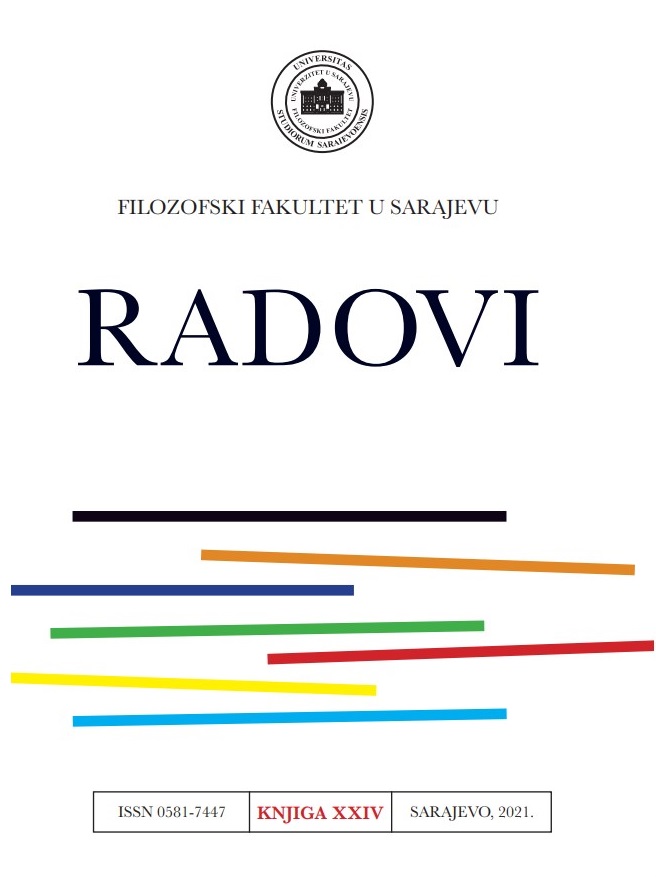Andrićeva pripovijetka Most na Žepi kroz perspektivu hermeneutičke narativne etike Hanne Meretoje
Andrić's Short Story The Bridge On Žepa Through the Perspective of Hanna Meretoja's Hermeneutic Narrative Ethics
Author(s): Aida BajraktarevićSubject(s): Studies of Literature, Bosnian Literature, Croatian Literature, Serbian Literature
Published by: Filozofski fakultet Univerziteta u Sarajevu
Keywords: Ivo Andrić; The Bridge on the Žepa; hermeneutic narrative ethics; ethical potentials of storytelling;
Summary/Abstract: The paper analyzes the story of Ivo Andrić The Bridge on the Žepa in the interpretive key of hermeneutic narrative ethics. The goals of the work were multiple. The first goal was to look at and explain the mentioned theoretical-analytical framework, which has not been the subject of the study within the Bosnian-Herzegovinian literary-theoretical discourse. The reason why hermeneutic narrative ethics is presented is that it, as a new, insufficiently known approach to storytelling, enables new readings of narrative texts. This goal was realized by presenting the methodological apparatus of this framework, which includes the following concepts: ethical potentials of storytelling, sense of the possible, historical imagination, dialogicity, subversive narrative understanding, awareness of other people’s perspectives, ethical search. These concepts are applied in the second part of the paper, which offers a new reading of the short story The Bridge on the Žepa. The main hypothesis of the paper is that Andrić’s story develops certain ethical potentials of storytelling. The paper showed that the stated interpretive approach with its methodological apparatus enables the understanding of the ethical potentials of Andrić’s story The Bridge on the Žepa, which were not the subject of literary criticism. The analysis also revealed that the narrative of the circumstances of the construction of the magnificent bridge in Žepa is a means of understanding the individual and wider cultural past of characters whose lives took place in the space of possibilities of a particular historical world, and that the story is a form of ethical search, which develops the ethos of dialogue because it encourages the dialogic conception of narration.
Journal: Radovi Filozofskog fakulteta u Sarajevu
- Issue Year: 24/2021
- Issue No: 1
- Page Range: 373-387
- Page Count: 15
- Language: Bosnian

